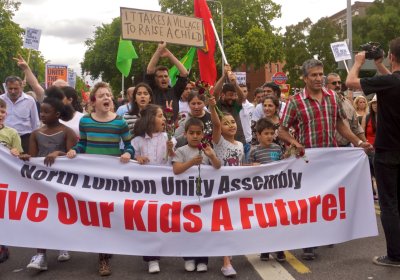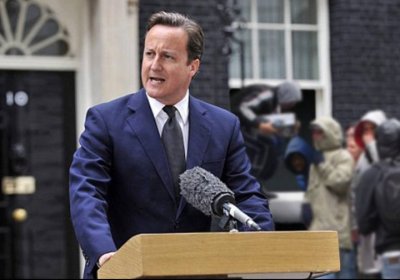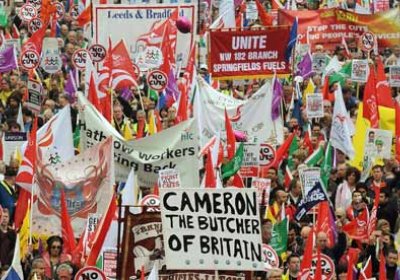London
Living in north London, I often travel via the interchange in Tottenham. Walking between stations I found myself on Ferry Lane Bridge on the evening of August 14, the spot where Mark Duggan was shot by police on August 4.
“Mob rule”. “Wanton destruction”. “Mindless thuggery”. “Sheer criminality”. Media, politicians and police always say the same thing about urban riots. Riots can spin out of control and engulf ordinary people. But that does not alter the fact that they are rooted in social oppression.
Why is it that the same areas always erupt first, whatever the cause? Pure accident? Might it have something to do with race and class and institutionalised poverty and the sheer grimness of everyday life?
You've probably heard it said a dozen times today: "It's like 28 Days Later out there." Every thirty seconds, there's a new riot zone. I've rarely known the capital to be this wound up.
About 500,000 people marched in London on March 26 against the British government’s program of huge spending cuts. Called by the Trade Union Congress (TUC), the march drew people from every part of Britain — a splendid cross section of the country with numbers dominated by the working class.
WikiLeaks founder Julian Assange spoke to reporters outside a London court following his bail release from prison, where he has been held since Dec. 7th.
- Previous page
- Page 5
- Next page








